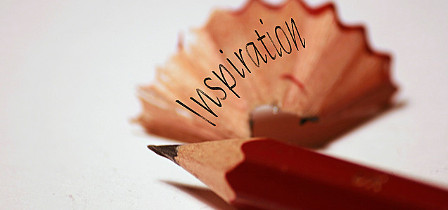
March 27, 2015, by Mary Strickson
Spotlight On… Feature Writing Workshop
By Mary Strickson, student blogger
During the spring term careers events programme, I attended the Spotlight On…Feature Writing Workshop. The workshop featured Dave Wellford, former journalist and now senior lecturer at the Centre for Broadcast Journalism, Nottingham Trent University.
Part one: his job experience and skills
The first half of the workshop was about the skills and techniques necessary for feature-writing and included Dave running through some of the tricks of the trade. He talked about his background and job-expertise before explaining the difference between news stories and features. I found Dave’s teaching style different to other lecturers; he would explain a skill or technique by illustrating it with a personal anecdote or story that had happened to him.
Importance of research and writing techniques
He emphasised the need for research into the subject and the importance of using case studies, how to find them, researching their biographical background and how to interview the subject. He broke down how you would write a feature-article split into 100-word sections. He explained:
- the difference between a headline and standfirst (an introductory paragraph in an article, printed in larger or bolder type or in capitals, which summarizes the article)
- how to use a news peg (an aspect or angle of a story that makes it newsworthy)
- the importance of pace and visuals
- how to use panels and fact files (a way of adding extra information, facts at a glance or contact details that might otherwise get lost in the main body of the text)
- how to write an introduction and ending
- using the present tense and how best to format our work
I found this insightful as using pegs and panels within feature-writing was not something I had known about before.
Part two: how to get into a career in journalism
Dave’s advice was that an accredited National Council for Training for Journalism (NCTJ) qualification greatly improves your chance of getting on and he explained the differences between the types of courses on offer. He said shorthand was taught on these courses and that employers wouldn’t entertain applicants without this skill. He advised us how to get work experience in print journalism by contacting companies or editors.
Chance for Q and A
As I am already part-way through my MA Art History, I asked whether you could go into arts journalism without a another industry relevant qualification. Dave responded that it was more difficult without a journalism qualification and that you can’t specialise early on without working in general journalism first. Answering another student’s question he said that you could try and work your way up in journalism without a relevant qualification but that it would be hard work and involve applying for placements with local companies. He said that you could blog yourself and you might be able to ‘bust your way in’.
Conclusion
The workshop was insightful but perhaps not very suited to me in my current situation as a postgraduate student. The huge emphasis on doing an industry relevant qualification put me off as I am already halfway through my masters!
Although I learned some useful techniques for feature-writing, the workshop was more suited to news stories and reports whereas I am used to writing for arts-led publications. I did learn about journalistic techniques and it was a useful insight into a career I had not considered or encountered before.
If you’re interested in a career in journalism, ways to gain work experience during your course and further study options, talk to one of our careers advisers.
Source of image: Alan Cleaver: Writing
No comments yet, fill out a comment to be the first

Leave a Reply